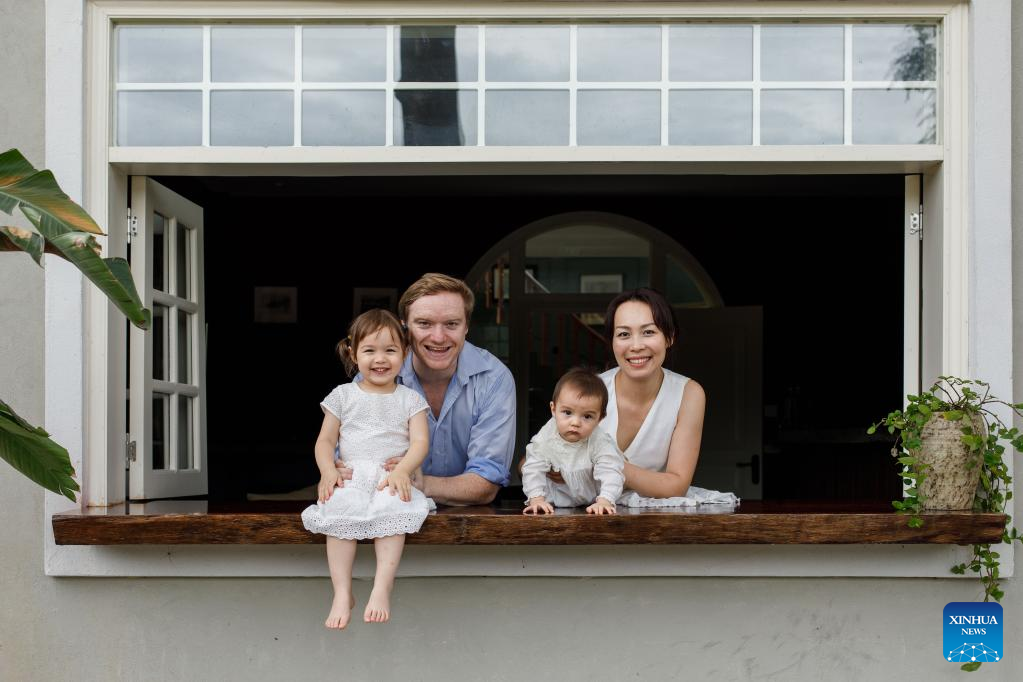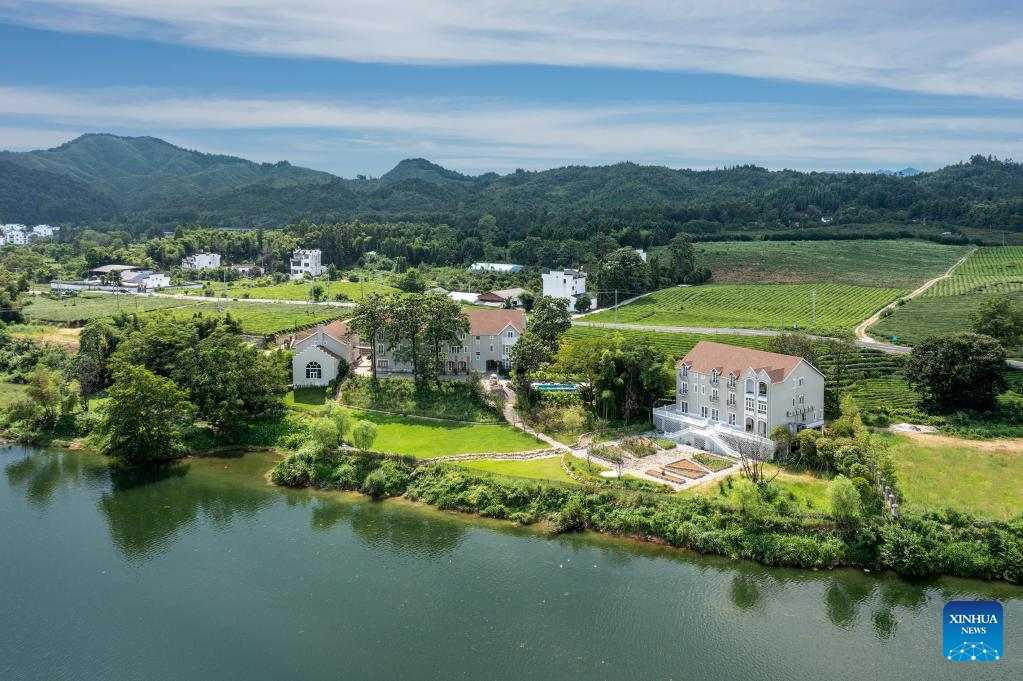
This undated file photo provided by the interviewee shows Edward Gawne (2nd L) and his family posing for a group photo at their bed-and-breakfast (B&B) in Wuyuan, east China's Jiangxi Province. (Xinhua)
NANCHANG, April 26 (Xinhua) -- Located in Wuyuan County in east China's Jiangxi Province, an old Huizhou-style mansion has been given a unique twist with a British garden, a cozy fireplace, and a bar counter. Despite the Western decor, the interior remains in harmony with its traditional Chinese style.
The house boasts an exquisite blend of British and Chinese styles and is owned by British man Edward Gawne, and his wife Liao Minxin, a native of Jiangxi. In 2015, the transnational couple adopted the old mansion and decided to transform it into a bed-and-breakfast (B&B).
Scattered with historical sites and ancient buildings of the Ming and Qing Dynasties (1368-1911), Wuyuan boasts a total of 30 traditional villages. In 2012, the county government adopted measures to protect and develop the ancient villages and buildings by encouraging adoption and relocation.
"There are trees, bridges, flowing water, and beautiful Huizhou-style houses. It is how I imagined traditional Chinese culture would look like," said Gawne, the first foreigner to adopt an old building in the county, regarded as one of the most beautiful countrysides in China.
With a history of over 200 years, the Qing Dynasty dwellings had fallen into disrepair. "The house was uninhabitable, and the stairs even collapsed," Liao recalled. After nearly two years of renovation with the help of international designers and architects, their Chinese-English-style B&B, named Skywells, started operations.
"Our B&B has served as a bridge for cultural exchanges between China and the West. About 90 percent of our guests are foreigners, and they could enjoy the beauty of Chinese traditional villages and learn about the culture and folk customs of Wuyuan and Jiangxi," Liao said.
To further vitalize the ancient buildings, the government of Wuyuan released detailed information on its 14 derelict historical buildings in 2022, including their names, addresses, floorage, age, and structures, to find "adopters" from around the world.
During the adoption process, the local housing department would examine the adopters' renovation and decoration plans to protect the original style and structures of the historical buildings.
"Apart from protecting the old construction, the attitudes and lifestyles of people there in the past should be also retained," said Wu Zhixuan, the first adopter of the county's old buildings.
According to Tao Kaiwei, deputy director of the county's bureau of culture, radio, television, press, publication, and tourism, the county has introduced many measures for managing the B&B industry and arranged special funds to support the development of B&B industrial clusters in recent years.
At present, there are over 800 high-quality B&Bs and three traditional villages with over 100 old buildings that are helping develop this sector in Wuyuan. The booming B&B industry has provided job opportunities for more than 20,000 people and promoted the local tourism industry.
"We plan to integrate and utilize resources to explore new paths for the vitalization and utilization of traditional villages and ancient buildings," Tao said. ■

This undated file photo provided by the interviewee shows the bed-and-breakfast (B&B) owned by Edward Gawne, and his wife Liao Minxin, in Wuyuan, east China's Jiangxi Province. (Xinhua)



